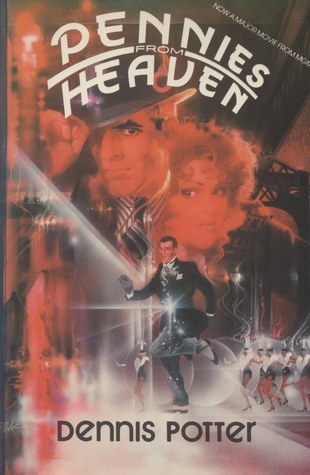
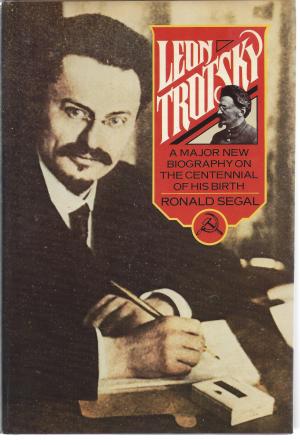
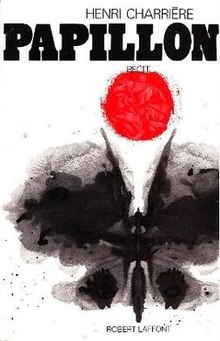
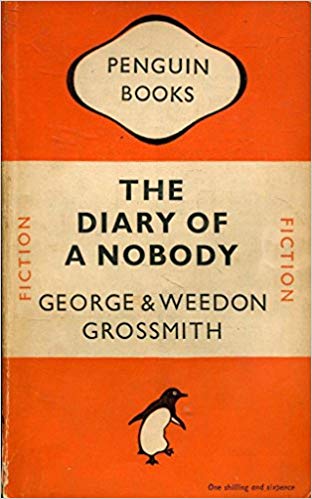
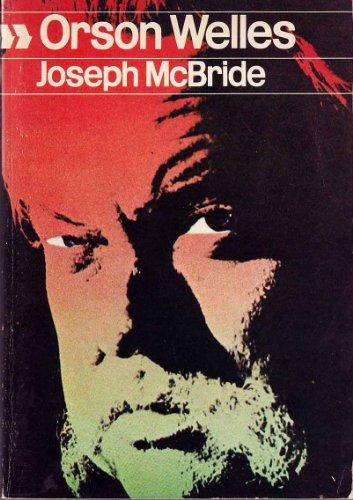
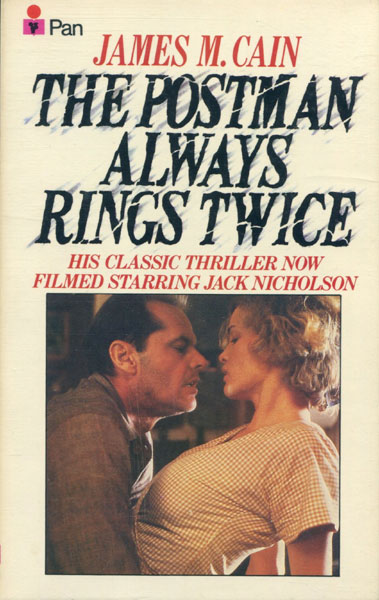








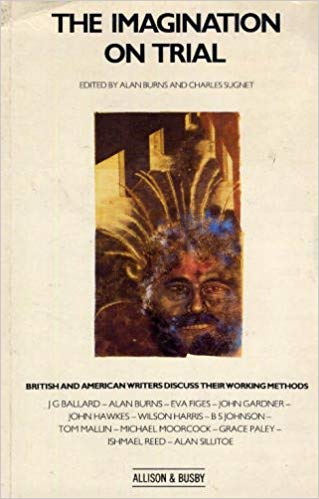
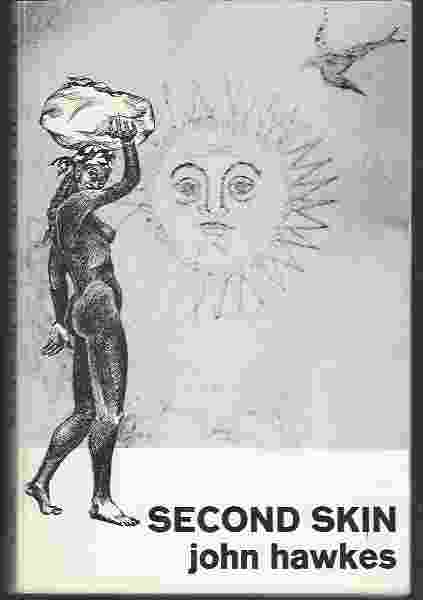
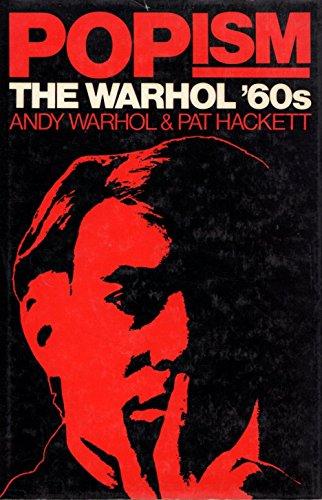
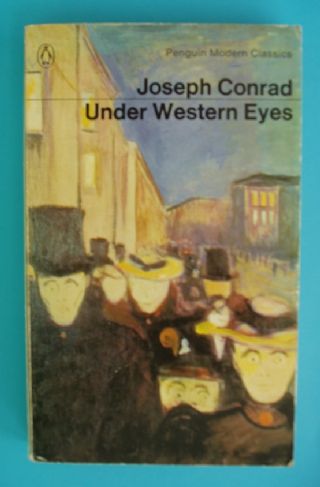
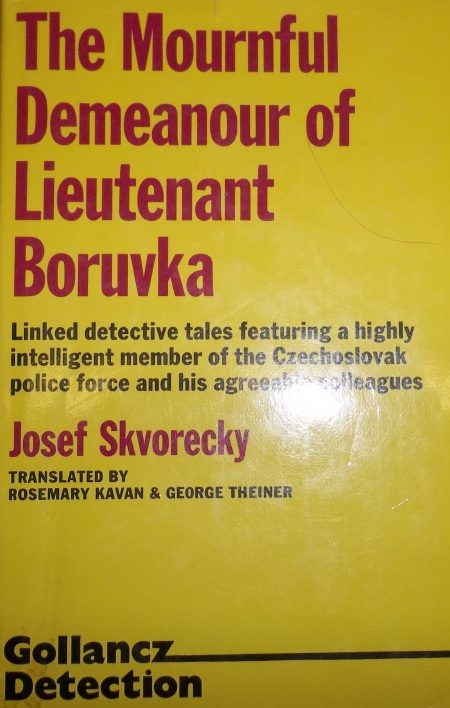
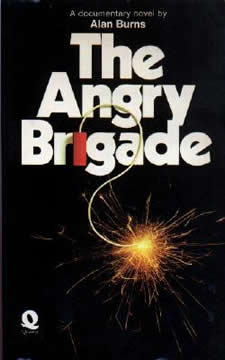
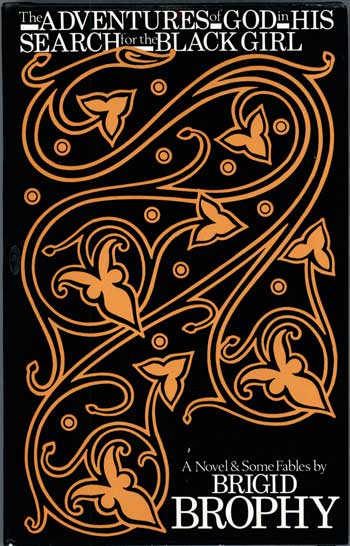

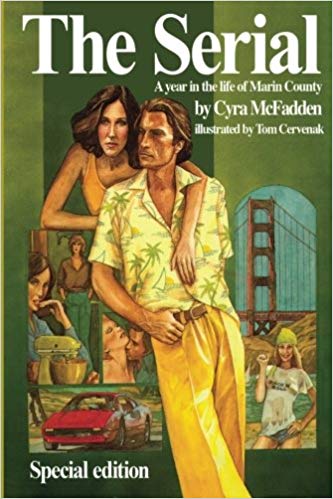
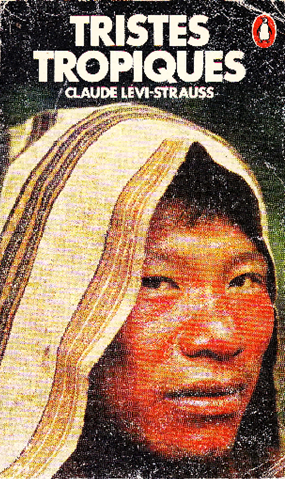
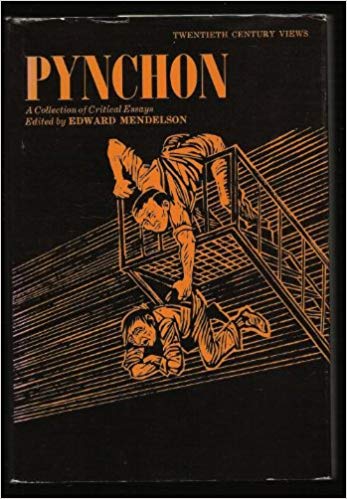
I have maintained a list of every book I’ve read since 1982. (I did once have an earlier list, stretching back to the mid-seventies, but this was irretrievably lost at some point, and my memory is not good enough to recreate it.) I thought it would be a fine thing to create a gallery of the covers of these many, many books, where possible showing the edition I read – not always possible when I borrowed the book from a library. Here is a first stab at the project, showing the first six books I read in 1982. The next half-dozen will appear tomorrow.
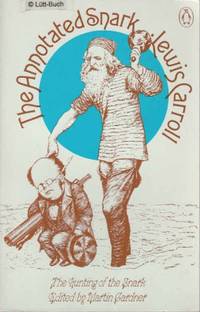
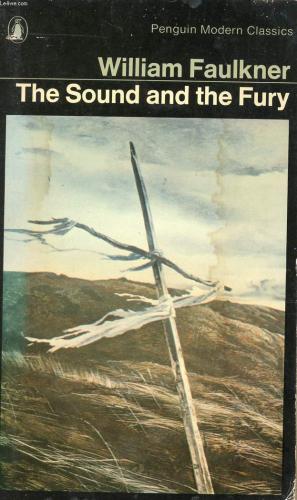
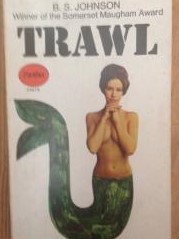
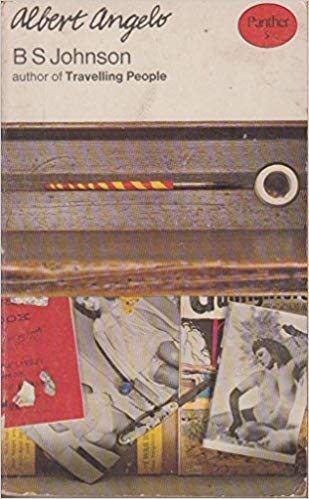
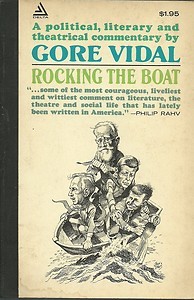
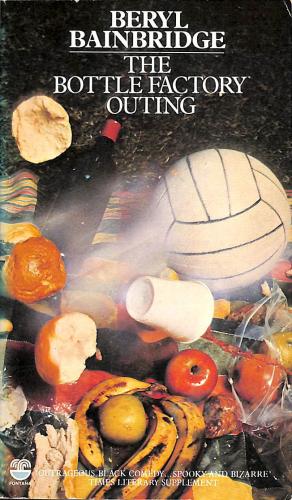
Immediately adjacent to the Duntblau Wool Shop, on the main shopping parade, is the Duntblau Nougat Parlour. This is the chief source of nougat, not only in Duntblau, but for miles around.
The proprietor of the Nougat Parlour is a fellow called Jukka-Pekka [Illegible], who can best be described as a “capsized man”. That is how he was referred to in the most authoritative book on the subject, Pen-Portraits Of The Proprietors Of The Duntblau Nougat Parlour, From Its Foundation In 1882 To The Present Day.
The illegibility of his surname is but one, telling, sign of his capsized nature. Add to that the fact that he is often to be found upside down and soaking wet, even when behind the counter selling nougat to the more confectionery-bedazzled citizens of Duntblau.
His history is curious, if shadowy. It is also dark, sweeping, flinty, error-strewn, piquant, lode-bearing, toffee-nosed, hip, hep, and hapless. Some claim it is tacky. Whichever words are used to describe his history, they pale in comparison to the pencil-drawings and diagrams which often accompany them. Many, if not most of these were executed at a single marathon session by Duntblau’s civic penciliste, Maisie Binns.
Maisie Binns herself is a woman without a history.
“One day she was just there,” reported the town blabbermouth, “Sitting on a chair near the shopping parade, scribbling in her sketchpad with a pencil. It was as if she had simply dropped from heaven. The pencil whizzed over the paper, she turned out drawings and diagrams with a felicity that can only be marvelled at. She was there, and then, just as suddenly, pfft!, she was gone. They say we shall not see her like again, but this is incorrect, as a second penciliste will be appearing shortly, God willing, if my prayers have been answered. And why should they not be?”
There is something dismal about Duntblau once one wanders far from the shopping parade. Any sense of civic oomph is dispelled the further away one is from wool and nougat. But I suppose the same could be said of virtually any cluster of buildings, any human settlement, in any of the districts of any of the regions in any of the countries in any of the continents on any of the planets in any of the solar systems.
It cannot be said of the seas. The seas are very different from the lands. The seas are soaking wet, and riddled with fish, and cephalopods, and huge aquatic monsters which suddenly crash to the surface and overturn our puny human boats, capsizing them, and all who sail in them.
Nimrod Im Duntblau is an opera by Horst Gack, the contemporary composer famed for his startling bouffant, ill temper, and near-fatal coughing fits. It is both unfinished and unperformed. Several extracts have been recorded, at gunpoint, by the Loopy Von Straubenzee Jug Band accompanied by one-time popstrels Ingmar & Hetty, the so-called “terrifying singing twins”. Horst Gack himself pointed the gun.
In Act One, Scene One, Nimrod arrives in Duntblau. The “mighty hunter before the Lord” is, appropriately, on a hunting expedition. He sings that he has heard much about the fabled Chicken of Duntblau, which he means to hunt down, pinion, and strangle with his bare hands.
He is overheard by Schwindi, the Duntblau Postmistress, who is hiding behind an arras. When Nimrod exits, she appears and sings the plaintive ballad “Must we swim yet again in the blood of chickens?”
Horst Gack has yet to write scenes two and three, but in Act One, Scene Four we find Nimrod, alone in the graveyard of St Bibblybibdib’s church, leaning insouciantly against a tombstone, smoking a fag, and muttering to himself. Because the muttering is punctuated by occasional thumps of a kettledrum, Horst Gack counts this as an arietta.
The only other scene yet completed is Act Seven, Scene Forty-Two. Schwindi is standing outside the Duntblau Chicken Sanctuary, holding a placard and singing a dirge. Critics have been sharply divided over this lengthy number. In the Macclesfield Tomato Sellers’ Weekly, Trilby Baxter dubbed it “a dire dirge, the direst dirge I ever heard”. (This sentence was abstracted by Dennis Beerpint, who used it as the first line of one of his twee verses, where “heard” is rhymed with “bird”, “curd”, “furred”, “bird” again, and “erred”.)
On the other hand, writing in the journal Dirges By Gack, Giles Pipstraw commended the piece as “possibly the most magnificent dirge moaned by a postmistress holding a placard outside Duntblau Chicken Sanctuary ever committed to sheet music by your friend and mine, Horst Gack!” (The overexcited Pipstraw in fact added nine more exclamation marks, which I have omitted for reasons of space.)
Other critics have ignored the dirge entirely, waiting, some would say wisely, for the opera to be finished before they pronounce upon it.
CDs of the recorded extracts can be obtained at jumble sales, charity shops, and as part of the contents of a jamboree bag available from spivs lurking in insalubrious alleyways in certain ill-starred seaside resorts, but not in Duntblau.
Ingmar & Hetty are currently on tour with their “Eighty Years In Showbiz And Contemporary German Opera” special extravaganza.
The sun is a ball of flames. It feels like a torrid southern summer … I can see a port. People are strolling in the shade of the high harbour walls. Shop doors are open wide. Aromas of tropical fruit fill the air with their fragrance. Peaches, oranges, apricots, raisins, cloves, and pepper all give off their wonderful scents. The asphalt steams after being sprayed with water. I can hear the strident, guttural tones of Persian merchants offering their wares. My God! How marvellous it smells here! How pleasant is the tropical air!
Suddenly my foot tripped over my ski pole. I quickly steadied myself against the kayak, opened my eyes wide, and was dazzled by the sun. For a moment I did not know where I was. What had happened to my tropical port? How the devil had I been transported to this icy wasteland?
“What happened?” asked my companions. “Nothing,” I answered, “I tripped over my pole. The boreal landscape unfolded once more before me in an infinite expanse, and the sun which had fleetingly brought me such joy now sought only to blind and torture me.
Yet the hallucination did not completely vanish. My nose was still filled with the aromas of Mediterranean fruit. My companions were not conscious of my present condition. What did it mean? Was I ill? I shut my eyes tight once again. I was like an automaton, moving rhythmically with the pole in my right hand, and once again I could hear the monotonous tune: “Far to go, so very far!”
But what I had just experienced continued to trouble me. For strangely enough I had never liked those aromatic fruits. They had never tempted my palate.
Valerian Albanov, In The Land Of White Death : An Epic Story Of Survival In The Siberian Arctic (Pimlico, 2001)
It has been said that the sky above Duntblau is rife with fulmars, but I have never seen one. And I have gazed up at that sky for hours, more hours than I can count, lying on my back on a lawn outside a hotel, searching for fulmars. It’s what I do. Nobody pays me.
Now, about this hotel It is you know what?, quite honestly, what do you expect me to say about a hotel in Duntblau? It’s not as if I’ve ever stayed in it. I doubt they would let me in, in my foetid rags, without a hat to my name, and the whiff of soup-gone-bad on my breath.
I read somewhere a recipe for fulmar soup. As I recall, you first had to obtain a brace of fulmars, which is easier said than done, particularly if there is not a single one to be seen in the sky above the hotel you are lying on the lawn outside of. I think my grammar is impeccable there, though I wouldn’t swear to it, not that anybody is likely to make me.
The recipe was in a book called 26 Bird-Based Soups. I seem to recall it was an A to Z of birds, but I don’t remember what the other twenty-five were, whether A was for auk or albatross, B for budgerigar or bananaquit, you can fill in the rest, with the aid of a dictionary of ornithology, if you have one, or from whole cloth, if you haven’t.
I don’t have a dictionary of ornithology, but I am working on a dictionary of hotel lawns. Not all hotels have lawns attached, did you know that?, but the one in Duntblau does. I often lie on it looking up at the sky, hoping to spot a fulmar. That is the hotel lawn I have started to write the entry for in my dictionary. Others will follow. I hope to interest a publisher.
Publishers are a funny lot. They used to be men wearing tweed and smoking pipes. Now they all seem to be twelve-year-old girls. Do they even know what a fulmar is?
I can’t remember how old I was when first I learned about fulmars. Possibly eight. We had a teacher at my primary school who was simply mad about birds. He was mad about a few other things too, like kings and queens and cornflakes. He was meant to be teaching us forensic criminology, but he was always getting carried away with his pet subjects. I think he was drafted to Vietnam, and killed at Khe Sanh.
Birds have often played an important part in wars, particularly pigeons. What valiant birds! They risk their little lives for us, with no hope of reward save the occasional handful of millet.
It is a curious fact that, lying on the lawn outside the hotel in Duntblau, gazing at the sky, not only have I never seen a fulmar, but nor have I ever spotted a pigeon, and at least I am one hundred percent sure what they look like, which I have to admit is not quite true of fulmars, the precise lineaments of which I have never been certain, not even when I was eight, and Mr Uganugu raved about them during several forensic criminology lessons in a row, Thursday afternoons at 2.15.
Oh, life held such promise then! I was an eager pupil, and the world lay before me, rich and ripe with possibilities. I had yet to discover gin and floozies and high debauch.
I was born in Duntblau, above the wool shop, at the beginning of our night that lasts for half a year. The alignment of the stars in the sky over Duntblau did not augur well. Shortly after my birth, the Woohoohoodiwoo Woman paid her visit, creaking up the fire escape to my parents’ flat above the wool shop. She cast her twigs and pebbles upon the floor, and descried signs in the steam rising from her bowl of boiling ducks’ blood. She announced that, though I was not exactly a cursèd child, still, I was a tot inwardly hobbled, morally and comprehensively. There was no force in the universe that could ever come to my aid. Mama poured the ducks’ blood down the drain while Papa paid the Woohoohoodiwoo Woman her stipend. As she creaked away down the fire escape, my infant wailing woke every sleeping soul in Duntblau.
Three decades and three more years passed, with little or nothing of remark, until one day Papa called me down to the back room of the wool shop.
“Shambeko,” he said, “You have now reached the age Christ Jesus was when he was so cruelly nailed to his cross. It is time you left Duntblau, to make your way in the world.”
I begged Papa to allow me to postpone my leaving for six months, when there would be daylight, but his mind was made up. I was to quit the wool shop immediately, and Duntblau as soon as possible thereafter. As I minced out of the door, Mama handed me a snack and a bag of whatnots.
When I was out of sight of the wool shop, I collapsed on to the pavement and ate my snack, a fish-paste whirl and a plum. Then I rummaged through the whatnots in the bag, but my fingers were sticky, so I tipped the contents on to the pavement the better to grasp their quiddities. Suddenly dozens of birds swooped from the Duntblau sky, grabbing the whatnots in their beaks, and soaring away, up, up, until they vanished into the black starless night.
After a while I rose to my feet and continued along the street, or rather, boulevard. This was one of the main thoroughfares of central Duntblau, and was named after Dave Dee, Dozy, Beaky, Mick, and Tich, huge cement statues of whom stood, upon tawdry plinths, at intervals from east to west. It so happened that, a couple of schtapps past the Beaky statue, where I had snacked and had my whatnots abstracted by birds, there was an alleyway leading off the boulevard to the left, and down this alleyway was the kiosk of the Woohoohoodiwoo Woman. I was minded to go and have a word with her, but just as I was readying my legs to make the required turn, I was set upon by an assailant.
It was not the first time in my thirty-three years to heaven that I felt the bash of a bludgeon on my bonce. Violence stalks Duntblau in the long night. But I had never before been knocked unconscious for such a protracted period of time. When I came to, sprawled in the gutter, I heard the toots and bangs and bellowing of improvised oompah band music, and saw the massed papier-mâché puppets of Duntblau noteworthies being carried aloft. It was the Saint Bibblybibdib’s Day Parade! I must have been lying in the gutter for a fortnight!
I knew Papa would expect me to be a lot further away by now, possibly gone from Duntblau entirely. I knew, too, that he was likely to have employed the private detectives Perkins & Throwback to scour the streets for any sign of me. He was that kind of Papa – rigorous, righteous, mad. I had to make myself scarce.
I scuttled off down an alleyway. It was a different alleyway to the one where the Woohoohoodiwoo Woman had her kiosk, but there is that old saying in Duntblau “All alleyways [something something] / But [something] a ha’porth for a kiosk”. Above me the shroud of night lay heavy upon the souls of embittered men and their wan, pale wives. The alleyway was scattered with dustbins and corrugated cardboard and dead or dying kittens. A dribbling sot lurked in a doorway, shaking his fist at nothing. I pulled up my collar as I passed him by. How does that song go?
I pulled up my collar as I passed him by,
Little suspecting he was a private eye,
Either Perkins or Throwback, hired by my dad.
The end of this story is going to be sad.
The end of this story is going to be sad. No longer feigning sottishness and the dribbling that accompanies it, Perkins, or it might have been Throwback, grabbed me by the shoulders and pulled a sack over my head. I was overcome by the pong of bladderwrack. The private eye prodded me in the back and told me to start walking. So, sightless, I walked, or tottered, Perkins or Throwback guiding me like a dog.
Also like a dog, indeed so much like a dog that it actually was a dog, was a dog that started trotting alongside us after we had been walking for, oh, I don’t know, call it a few miles. At some point we began to go uphill, at a steeper and steeper gradient. I was panting. The dog was yapping. Perkins or Throwback seemed tireless, humming a varied selection of tunes by Rodgers & Hammerstein, Rodgers & Hart, Leiber & Stoller, Brecht & Eisler, Ashford & Simpson, Flanders & Swann, Goffin & King, and Holland, Dozier, Holland, Dozier, Dozier, Holland, Holland, Dozier, Holland, Dozier, Dozier, Holland.
Eventually, we stopped. The private eye muttered something menacing, and I heard him trudging away. When I thought it safe to do so, I pulled the sack off my head and looked around. We were high up in an important mountain range, muffled by snow, and ice, and a thick, swirling, freezing mist, a white nothingness. The dog had stopped yapping and was gazing up at me adoringly.
“Toto,” I said, ” I’ve a feeling we’re not in Duntblau anymore.”
They clapped me in irons, and read me my rights. Or perhaps it was the other way round. Maybe the clapping and the reading happened at the same time, I can’t be clear. The day was so hot, the sunlight so bright, the meadow so bespattered with buttercups, and here and there a dumb stupid cow, I could not think straight. In any case, they read my rights to me in a wholly unfamiliar language, guttural and seemingly lacking in vowels. Then they shoved me into the back of a van and slammed shut the door.
We drove for several hours, over the mountain pass to Duntblau. I only learned this later. At the time I had no idea where we were going. There were three other miscreants in the back of the van with me, but they were clueless. They had also been clapped in irons, and were as dumb and stupid as the cows I had left behind in the meadow. I soon gave up my attempts at conversation. Instead I studied their heads for evidence of criminality. I have often found phrenology a capital way to pass the time.
When we arrived at the police station in Duntblau, we were bundled out of the van and led through a door along a filthy corridor and through another door and another corridor, less filthy, and oh get on with it. We ended up in an interrogation room. Well, I did. Perhaps the other three were taken to their own interrogation rooms. Perhaps they were shot. I don’t know.
On that day and the next I must have answered thousands of questions. All my replies were spirited and perky, for I was keen to make the right impression and to help them with their enquiries.
The chief interrogator, who spoke my language with an accent I would have found amusing in any other circumstances, was a dwarf. I thought he had a criminal shape to his head, but did not say so. From time to time he was joined by a colleague, no dwarf he by golly!, but this fellow stayed silent, and seemed more interested in contemplating the tulips in a vase on the windowsill. The window itself had been covered over by a poster of the type sold by Athena in the 1970s. It was upside down.
The questions hurled at me ranged over the entirety of my life, from before birth up to the moment just before I was clapped in irons. He was a very thorough dwarf. He took no written notes, but tapped his fingertips upon his temple every now and then, as if lodging what I said into his memory. His trousers were of the drainpipe variety, for what it’s worth, and his shoes were of blue suede. He did a lot of strutting to and fro as he fired his questions, rarely bothering to look at me. I remained perky.
Midway through the second day, there came the roars and flashes of a thunderstorm so terrible and violent that all of us, me and the dwarf and the tulip-worrier, were cowed. We sheltered under a table, much as James Joyce did when so storm-frightened in Scheveningen, in 1917.
Once the storm ceased, and I was back in my chair, and the dwarf was strutting, and the other chap had left the room to fetch some Baby Bio for the tulips, my interrogation lost its focus. The dwarf started to ask increasingly irrelevant and even incomprehensible questions. From details of my life, his attention now passed to such matters as the Munich Air Disaster, the Tet Offensive, and John Major’s traffic cones hotline, none of which I had had any involvement in, as far as I could remember, honest guv. But he was relentless, like a swordfish. I found it harder and harder to remain perky. Eventually, I snapped. I interrupted the dwarf in the middle of a question which, as far as I could ascertain, revolved, none too steadily, around the circumstances of the raid on Entebbe, and asked a question myself.
“Would it be at all possible, captain,” I said, “At this stage in the interrogation, given my cooperation and compliance thus far, not to mention my perkiness and eagerness to help you with your enquiries, for my irons to be unclapped, or declapped, or whatever the correct terminlogy is for the process, for they are chafing most miserably, captain.”
He could not stop himself from sputtering out the rest of his senseless question, but we both knew he did not expect a reply. He gathered himself, like Kate Winslet at an awards ceremony, strutted to the door, opened it, and shouted out for Tulip Man to bring the irons-declapping key.
They released me late in the afternoon, after giving me a cup of tea and a sandwich filled with some sort of godawful reconstituted fish-paste substitute. I would be hearing from them in due course, I was told, but I was free to go so long as I made no attempt to leave Duntblau. If I took a single step beyond the town limits, I would be hanged from the highest of the many gibbets, and crows would feast on my entrails. Understood? Yes, captain.
And so I minced out of the police station into the gorgeous air of Duntblau, windy, and overcast, with drizzle. From now on, and forever after, it would be my home. Wild was the Duntblau wind. I heard the sound of Duntblau mandolins.
Exciting news from ResonanceFM,,,,
Bank Holiday Monday, 27 August : 12:00am – 11:59pm.
Twenty four hours in the company of Frank Key, writer in residence and creator of Resonance’s longest running programme, Hooting Yard on the Air. Comprising a selection of programmes from the very first in April 2004 to the present day.
It has been an eerily quiet summer here at Hooting Yard, what with one ting and an udder (as my mother used to say). I hope to return to the land of the living soon.
My apologies for the recent lack of potsages [sic] here at the Yard of Hooting. This has been occasioned my my inability to cope – either mentally or physically – with the damnable weather. Whatever happened to “overcast, with drizzle”? Instrad, I am battered and blinded by the sun – or, as the Moody Blues liked to call it, Brave Helios! Well, Brave Helios is an accur’d orb I would happily see blotted out, or wholly extinguished. I shall pray for rain, or, better, a howling blizzard,, and resume tippy-tapping when I am able.
From the archives, August 2012:
I used to know a man who, like Sloppy in Our Mutual Friend, could do the Police in different voices. It began as a party trick, for which he always received thunderous rounds of applause, upon which he eventually became dependent. There came a time when he no longer used his normal speaking voice at all. He couched every single utterance in one of his different Police voices, but the novelty wore off, and people no longer clapped, and he grew sour and disillusioned and rancorous, and ended his days drunk to high heaven sprawled on the floor of a hotel lobby at a seaside resort. It is a cautionary tale, then, his life.
But that ruinous end cannot dim the joy of his early forays into doing the Police in different voices. I remember as if it were yesterday the first time I came across him. I was attending a sophisticated cocktail party in a sophisticated house in a sophisticated part of town, and, being myself deeply and ineradicably unsophisticated, was having a rather hard time mingling. I was leaning against a mantelpiece, trying my best to look insouciant, but the only people who deigned to speak to me were those who challenged my very presence, accusing me of being some kind of valet or factotum or, worse, an interloper. I grew increasingly cantankerous, losing any sheen of sophistication I might have hoped to assume. I spat at people and pointedly ground out my cigarette butts on the expensive carpet. Across the room I saw a couple of genuine factotae approaching, huge burly monobrowed fellows, like minatory bears, bent, I supposed, on chucking me out into the street. Before they reached me, however, the hubbub of sophisticated chitchat suddenly ceased, and one voice was ringing out solo.
“On the fifteenth inst at eight forty-six pee em I was proceeding along Letsby Avenue in a northerly direction when I spotted the accused taunting a kitten. I apprehended him in the course of this bestial enormity and – “ and then, without missing a beat, he quoted that twit-and-jug bit from The Waste Land, “ – Twit twit twit, Jug jug jug jug jug jug, So rudely forc’d, Tereu”. Then he continued, in so deep and grave and sonorous a voice we might have been listening to T S Eliot himself, “And I dragged him down to the nick for a mild roughing-up by some of Inspector Cargpan’s boys.” It was marvellous, and we all applauded, and my lack of sophistication was forgotten as all eyes turned to the owner of the voice.
Or, as I learned soon enough, voices. A couple of weeks later I went to another sophisticated cocktail party. This time I took the precaution of wearing spats and a dressing gown, to give myself airs. I was leaning against a mantelpiece when once again, there was a hush and a single voice made itself heard:
“On the sixteenth inst at six fourteen pee em I was proceeding along Letsby Avenue in a westerly direction when I spotted the accused engaged in a hate crime against a sparrow. No! Oo-er, missus. Really! Nay, nay and thrice may! Titter ye not! Oo-er. I dragged him down to the nick and handed him over to Inspector Cargpan’s boys for a roughing-up in the basement.”
It was extraordinary. There was no hint of T S Eliot. This time it was is if Frankie Howerd had come back to life. Again there was a round of applause. I left my mantelpiece and made my way across the room to congratulate the speaker personally, but before I could reach him he had flitted away, possibly with some of the silverware tucked in his pocket.
Over the next few years, during my inveterate partygoing, I came upon the fellow, who I had dubbed “Sloppy” after his Dickensian inspiration, on numerous occasions. Every time I heard him he do the Police in different voices. Some of them were recognisable. As with his Eliot and Howerd, he could do pitch perfect impersonations of Enoch Powell and Bernard Levin, both Mike and Bernie Winters, and the Irish one-time hostage Brian Keenan. I even heard him do Yoko Ono. He had other voices which seemed to spring from his repertoire of invented characters, a chuckling Quaker, for example, and a breathless bike wanker. He never repeated himself.
The last time I saw, or rather heard, Sloppy, was at a sophisticated cocktail party at an art gallery private view. I was leaning against a mantelpiece staring vacantly at a splattery daub when a voice rose above the arty babbling. And this time it was not a speaking voice. Sloppy was singing! Well, perhaps it would be more accurate to say he was caterwauling, in an ear-splitting high-pitched screech. I recognised that sound immediately, and did not need to wait for the words “Roxanne, you don’t have to put on the red light” to know he was doing the Police in the voice of Gordon Sumner.
That, at least, was what I thought. But on my way home that night, through certain half-deserted streets, the muttering retreats of restless nights in one-night cheap hotels and sawdust restaurants with oyster-shells, I picked up the Evening Rag, and reading it on the unsophisticated top deck of the unsophisticated bus which took me to my unsophisticated home, I read that the man I knew as Sloppy had been buried that day in a seaside resort graveyard, having died drunk to high heaven sprawled on the floor of a hotel lobby earlier in the week. I realised, with a shock, that the screeching caterwauler at the private view must have been Sumner himself, and I wept. I could connect Nothing with nothing. The broken finger-nails of dirty hands. My people humble people who expect Nothing.
la la
To Carthage then I came
Burning burning burning burning
O Lord Thou pluckest me out
O Lord Thou pluckest
burning.
“I think that the constant study of maps is apt to disturb men’s reasoning powers.”
Prime Minister Lord Salisbury in 1890, quoted in Empire by Niall Ferguson (2003)